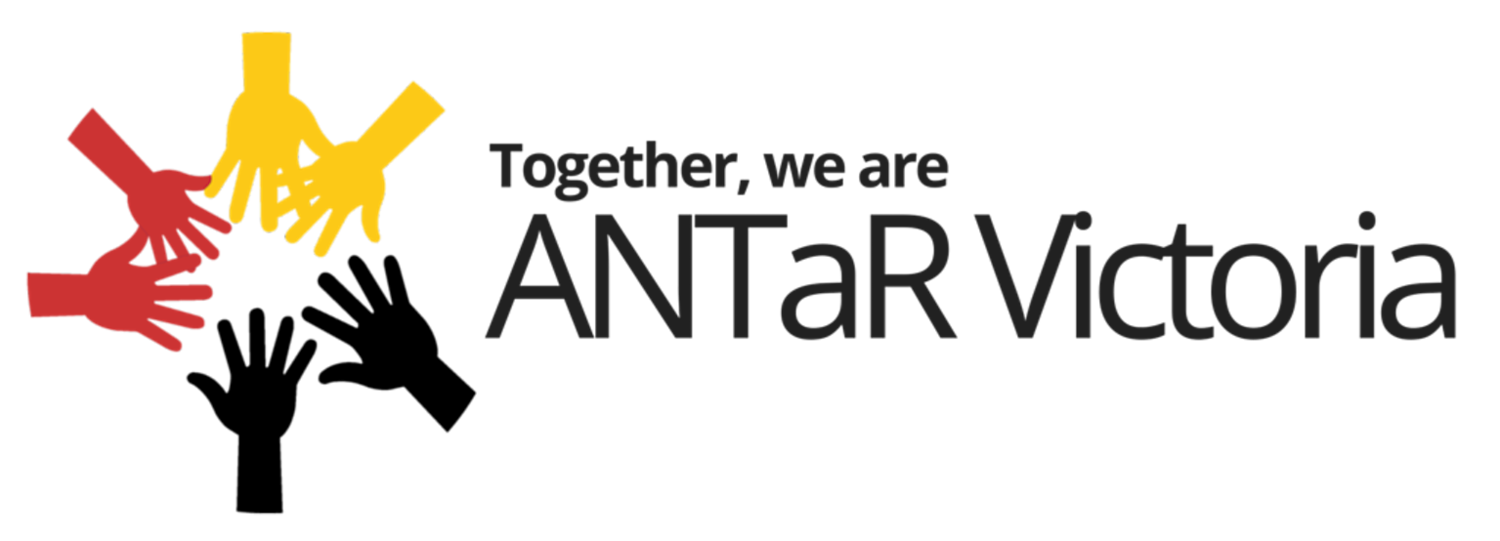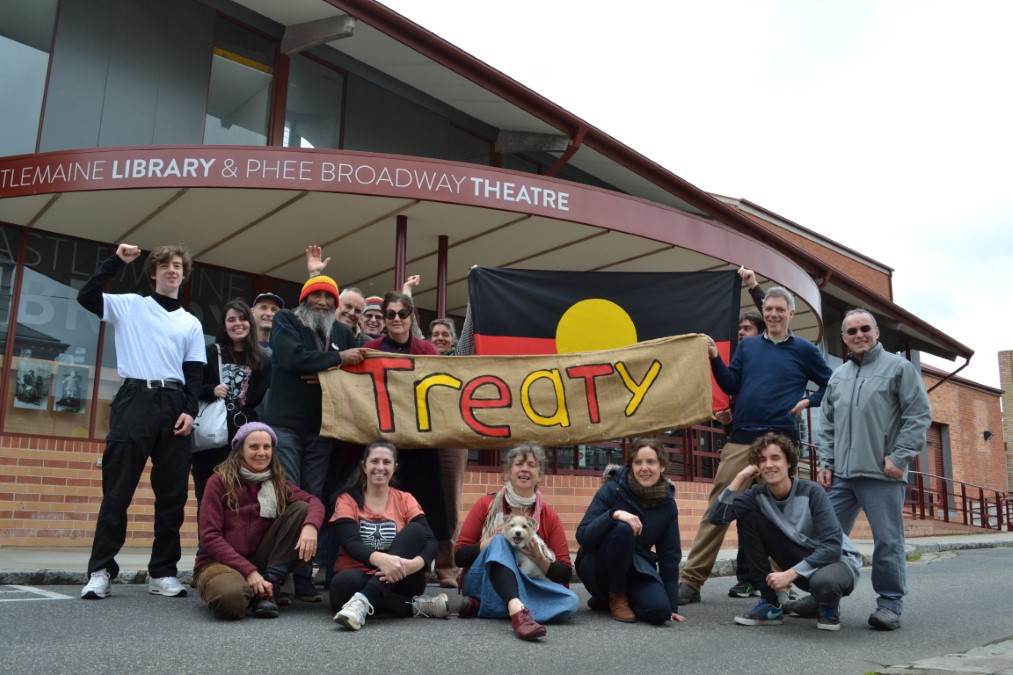The Treaty Process in Victoria
The Treaty process in Australia is an ongoing political topic since colonisation. A notable outcome is the creation of the Aboriginal Treaty Committee in 1979 which aimed to promote the concept of Treaty to non-Indigenous Australians. The Comittee was dissolved in 1983 in favour of Reconciliation. Five years later the Burunga Statement urged the Hawke government to create a Treaty.
Australia is now ready for a just and First Nation-led Treaty creation process. In Victoria the government began consultations with communities and Elders in early 2016, before establishing Aboriginal Treaty Working Group.
January 2018 saw the establishment of the Victorian Treaty Advancement Commission, which continued the work of the Aboriginal Treaty Working Group. The Working Group consequently evolved to an expert advisory role.
The Aboriginal Representative Body will be a key voice for Aboriginal people in the future Treaties process. It is envisaged to be set up in early 2019. It will be made up of traditional owners, elected by Aboriginal people across Victoria.
The process of creating a model for Treaty or Treaties will be lengthy and complex, as there are many language groups, land groups and Native Title determinants to consider. Each group has different priorities, needs and practices. This means that showing respect and supporting First Peoples locally looks different everywhere. The Victorian Treaty Advancement Commission aims to keep Aboriginal communities at the heart of these discussions and strengthen independence on the path to Treaty/ies. A summary of the Victorian Treaty/ies process to date can be found in the resources below. Here is a fact sheet about Treaty.
2010–The first Victorian Traditional Owner Settlement Act
The Act is approved and signed. This act provides a more holistic alternative to the Commonwealth Native Title scheme.
February 2016
Aboriginal people in Victoria renewed their call on the Victorian Government to negotiate a treaty. The Victorian Government heeded the call.
April-May 2016
Initial consultations took place with Aboriginal Elders and community leaders from Horsham, Bairnsdale, Shepparton and Mildura. There was also a message stick survey that allowed people to participate online. The aim was to establish what self-determination means for Aboriginal people. Concultations would continue over the next two years.
May 2016 – Elders Clan Group material released by VTOLJG
The Victorian Traditional Owners Lands Justice Group (VTOLJG) wrote an open letter to the Prime Minister, Opposition Leader, the Referendum Council and Victorian Parliament stating Clan Elders should negotiate a framework for Treaty with the state government. The letter can be seen here along with documents outlining Victorian First Nations and structure of Treaty of Treaties.
May 2016 – Aboriginal Victoria Forum
On 26-27 May, an Aboriginal Victoria Forum was attended by 400 people and watched by over 4000. A range of community leaders, including Hon. Natalie Hutchins, the Minister for Aboriginal Affairs, spoke, discussing the findings of these community consultations and future action.
The forum established that a Treaty Interim Working Group would be established to oversee the consultation and Treaty process, and that the process would be transparent and open. It was stated that self-determination is necessary and requires the Indigenous and non-Indigenous community to work together. You can read about this forum here.
December 2016 – Aboriginal Victoria Forum
Speakers included Aboriginal Victoria chief, Jason Mifsud, Gunditjmara man Richard Franklin, Gamillario/Torres Strait Islander woman NakkiahLui, and Natalie Hutchins MP. The main topics included the consultations process and self-determination.
April 2017 – Victorian Treaty Forum
The forum concluded that factors important to Aboriginal Victorians were self-determination, acknowledgement of First Peoples as the Traditional Owners of the land and the right to practice culture.
7,000 Aboriginal Victorians have taken part in consultations around the state. Natalie Hutchins MP announced that the Victorian government would contribute $28.5 million to support the Treaty process over the next 4 years. A further $39.7 million will be used for the purpose of establishing Aboriginal self-determination. Hutchins stated that the next step in self-determination is to establish "a representative assembly that will be tasked with working out the exact nature of the representative body."
Read the open letter from the Aboriginal Treaty Interum Working Group about the Victorian Treaty Forum to the Aboriginal community here.
January 2018 – The Victorian Treaty Advancement Commission is established
The Commission aims to set in motion outcomes of the Aboriginal Community Assembly (based on state-wide consultation) and previous consultations.
The Commission will establish the Aboriginal Representative Body by mid-2019 and continue the momentum of the treaty process.
March 2018- Final Report from the Aboriginal Treaty Working Group
Find report here.
March 2018- Advancing the Treaty Process with Aboriginal Victorians Bill 2018
The bill had its second reading in Parliament - becoming the first piece of Treaty legislation in an Australian parliament.
The Advancing the Treaty Process with Aboriginal Victorians Bill 2018 commits the Victorian Government to the process. It outlines guidelines for the establishment of a Treaty process, including the roles of the Aboriginal Representative Body and Victorian government in negotiating a framework for Treaty. The process is still not entirely mapped out as it is up to Aboriginal Victorians to self-determine.
See the Advancing the Treaty Process with Aboriginal Victorians Bill 2018 here.
May 2018- 2018/19 budget
Within the budget $116 million will be invested in supporting self-determination, celebrating culture and improving the lives of Aboriginal Victorians across the state. Of these allocated funds $9 million will contribute to establishing the elected Aboriginal Representative Body and advance Treaty. See Victorian government Media Release here.
March 2018-Greens back the formation of Clan Elders Council
The group claims that the Elders of many clans in Victoria have not been respected or represented, yet Elders are a crucial part of Aboriginal governance in all areas of representation, lore, culture, knowledge and tradition. Read the open letter which was used to petition Victorian Premier, Daniel Andrews here.
May 2018- Clan Elders Council meet
Here is the statement released by the Clan Elders Council.
April – July 2018-Treaty Roadshow
Treaty gathering in Castlemaine
Photo: Castlemaine Mail
The Treaty Advancement Commission holds community gatherings in Geelong, Colac, Warrnambool, Heywood, Hamilton, Portland, Ballarat, Halls Gap, Horsham, Mildura, Robinvale and Swan Hill. The gatherings are aimed at sharing more detailed information on the next phases of the treaty process, and gauging community aspirations for Treaty or Treaties from Aboriginal Victorians. Some of these aim to include and listen to Aboriginal Victorians while others aim to engage all Victorians.
See upcoming events here.
June 2018-Advancing the Treaty Process with Aboriginal Victorians Bill 2018 passed in Victorian parliament
The bill was supported by the Greens and Labor Party. The Liberal Party opposed the bill in favour of a national treaty process. See the bill here.
June 2018-Deadly Questions launched
Deadly Questions is a campaign launched by Aboriginal Victoria. The campaign aims to connect Aboriginal and non-Aboriginal Victorians by answering common and often taboo questions to Aboriginal Victorians. It also allows people to ask their own questions and have them answered. Visit the website here.
September 2018-Aboriginal Representative Body Proposal
The Victorian Treaty Advancement Commission proposed a draft model for the Aboriginal Representative Body and electorate borders for Aboriginal and Torres Strait Islanders who will democratically elect the Body. At a statewide treaty forum in the same month, the draft model was deliberated and discussed. The structure of the Aboriginal Representative Body will be finalised later this year. The Aboriginal Representative Body will negotiate the Treaty framework with the Victorian government.
Current obstacles include:
Some Traditional Owner groups sit on the borders of New South Wales and South Australia. It is unclear whether those that live across the border and the land across the border that is within the bounderies of these Nations.
It is unclear how the electorates will best represent the Traditional Owner sections
38 Nations
In response to the Aboriginal Representative Body proposal, many Traditional Owners from around the state have called for the body to have a representative from each of the 38 language groups of the state. There are Aboriginal Victorians who do not support this model, yet many feel that the proposed model by the Treaty Commission does not reflect Aboriginal lore appropriately.
You can find links to various interviews on the radio program Balit Dhumba with Charles Pakana from 3KND which provide an insight into different perspectives:
Coverage of 38 Nations rally (26 October 2018)
Sourced:
Victorian Treaty Advancement Commission
Home

